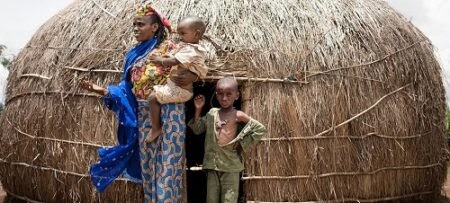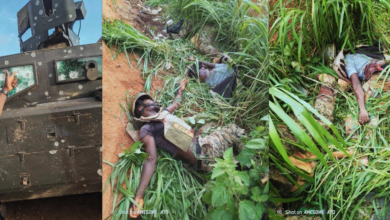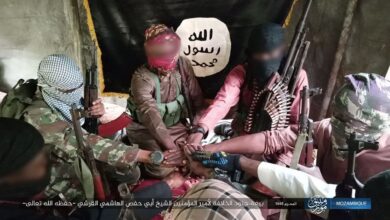Over 60% Of Central African Republic Population In Need Of Humanitarian Assistance And Protection – UN
The report revealed that the recurrent violence, persistent shocks and the degradation of basic services have significantly deteriorated the living conditions of the Central African Republic people in 2021

Over three million Central African Republic nationals constituting about 60 per cent of the population would be in need of humanitarian assistance and protection next year, the United Nations Office for the Coordination of Humanitarian Assistance (UNOCHA) has revealed.
According to a just published UNOCHA humanitarian report, among the three million persons, 2.2 million would be in need of complex and severe assistance to the point of their physical and mental well-being would be at risk.
This number constitutes an augmentation of 15 per cent or 300,000 persons more in need of severe humanitarian assistance as compared to this year, 2021.
The report revealed that the recurrent violence, persistent shocks and the degradation of basic services have significantly deteriorated the living conditions of the Central African Republic people in 2021, adding that more than 360 incidents affecting humanitarian workers were recorded in the country in 2021.
“At the same time”, the report revealed, “the resilience of the populations continues to erode under the weight of successive crises and economic recession.”
This has forced almost the total population to adopt negative mechanisms, the UN Agency revealed, adding that the situation described follows a joint multi-sectoral analysis carried out by the humanitarian community to determine the perception of the needs for 2022 in the Central African Republic.
The UNOCHA said the results of this analysis have brought to light the way the actual crises affect the living conditions of the population and the services.
It also revealed the priority needs of the population which “continues to pay the price of the tensions and the violence which continues in several parts of the country.”
The UN agency noted, during the first 10 months of this year, more than 360 incidents affecting humanitarian workers were recorded as against 340 during the same period in 2020.
For the lone month of October, 20 incidents were registered while 30 were also recorded in September this year.
Humanitarian workers, according to the UNOCHA report, came to the assistance of 1.7 million persons since the beginning of this year.
Seven humanitarian workers were temporarily abducted on Oct. 5, 2021 in Ouham, near Bouca, and five were held for two days, the report reveals.
“Theft, holdups, looting, threats and aggressions represent about two thirds (65%) of incidents, that is 235 out of 364 of them,” the UNOCHA report revealed, adding that “interferences and restrictions represent the other 35 per cent of incidents.”
The report further showed that, in spite of a very difficult operational context, humanitarian actors in the Central African Republic succeeded in furnishing multi-sectoral assistance to 1.7 million persons since the beginning of this year, adding that the proliferation of the conflict and the increase in serious violations of human rights and international humanitarian rights since the middle of December 2020 have had a multiplier effect on the forced or preventive movement of communities already weakened by years of conflict.
“Humanitarian assistance has permitted the attenuation of the immediate effects of food insecurity and malnutrition, the supply of shelter, water, hygiene and health services to the populations in distress,” the UNOCHA report concludes, revealing however that the 2021 Plan of Humanitarian Response was only financed to the tune of 60 per cent of the 444 million US dollars projected.
Support Our Journalism
There are millions of ordinary people affected by conflict in Africa whose stories are missing in the mainstream media. HumAngle is determined to tell those challenging and under-reported stories, hoping that the people impacted by these conflicts will find the safety and security they deserve.
To ensure that we continue to provide public service coverage, we have a small favour to ask you. We want you to be part of our journalistic endeavour by contributing a token to us.
Your donation will further promote a robust, free, and independent media.
Donate Here




